House speaker race: 7 of 9 GOP candidates voted to overturn 2020 election results
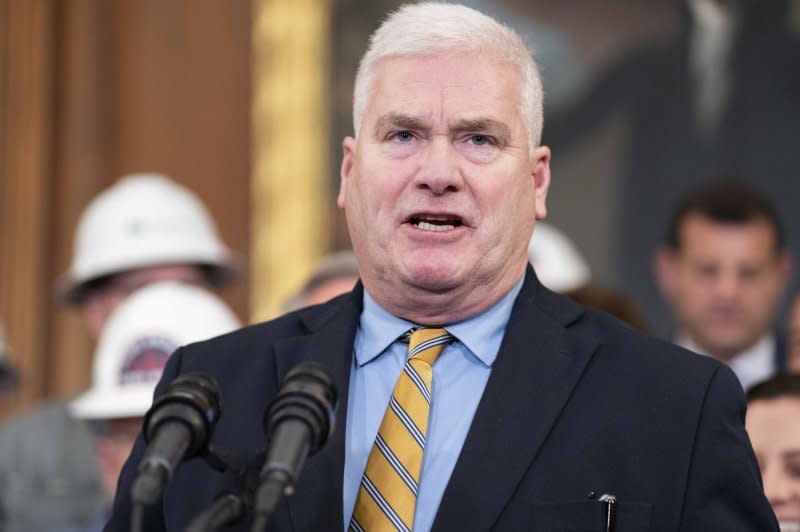
Oct. 23 (UPI) -- Nine Republican candidates have come forward to bid for the vacant House speaker seat. Seven of them voted to object to the result of the 2020 presidential election.
House Republicans are again seeking a speaker designee after Rep. Jim Jordan of Ohio failed to earn 217 votes through three rounds of voting. Jordan lost more Republican support in each round, ultimately leading him to step aside.
Some opponents of Jordan cited his refusal to publicly accept the results of Donald Trump's 2020 election loss to Joe Biden.
Of the nine Republicans vying for the gavel, seven voted against the certification of the 2020 results. Their stances on that and other high-profile issues may shape the direction of the House, charged with certifying the results of the 2024 election. Trump is again campaigning to be on the ballot in a potential rematch with Biden.
House Democratic leader Rep. Hakeem Jeffries of New York received the most votes, 210, in last week's voting, short of the 217 needed to win.

GOP House members were scheduled to meet in private on Monday evening, with the full House expected to gather Tuesday.
Here's a look at the Republican candidates for speaker.

Tom Emmer of Minnesota
U.S. House Majority Whip Tom Emmer is one of two candidates who did not vote to overturn the results of the 2020 presidential election.
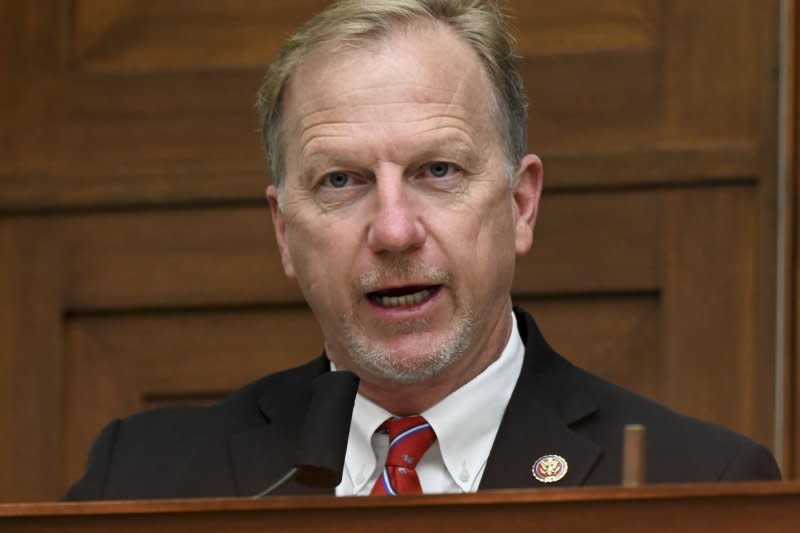
That decision, or a friendly rivalry, has earned him the vote of Rep. Ken Buck, R-N.Y., in three rounds of voting for speaker.
Buck told CNN's Dana Bash the speakership would be the "worst job in America. Mike Rowe would not want to do this for his TV show."

Emmer has earned a true endorsement from former speaker Kevin McCarthy, R-Calif., who was ousted from the position earlier this month.
"Our conference remains at a crossroads and the deck is stacked against us," Emmer said in a statement announcing his candidacy. "We have no choice but to fight like hell to hold onto our House majority and deliver on our conservative agenda."
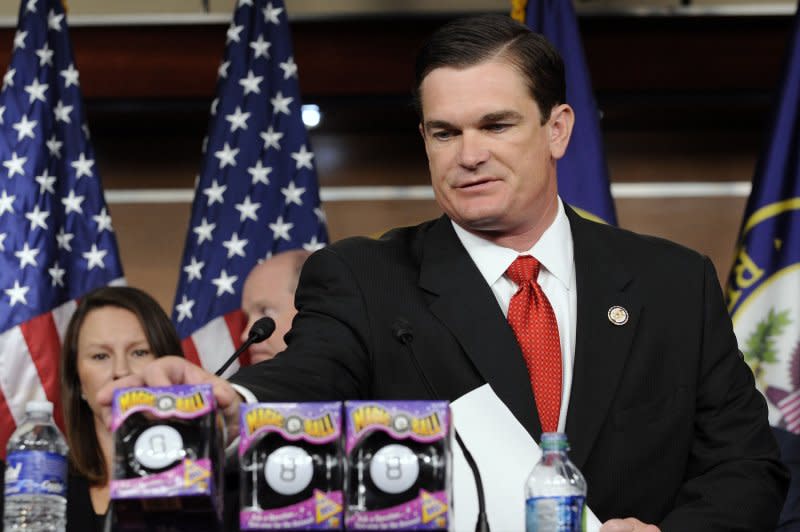
Emmer was elected to the House in 2015. He has called for increased mental health accessibility for farmers and rural communities. Over the summer, he began a push for the reauthorization of the Farm and Ranch Stress Assistance Network, which has not been funded since 2018.
Byron Donalds of Florida

Rep. Byron Donalds voted against certifying the results of the 2020 presidential election in Arizona and Pennsylvania.
During the House Oversight Committee's first hearing in House Republicans' effort to impeach Biden, Donalds shared doctored images of text messages purportedly from Hunter Biden, the president's son.
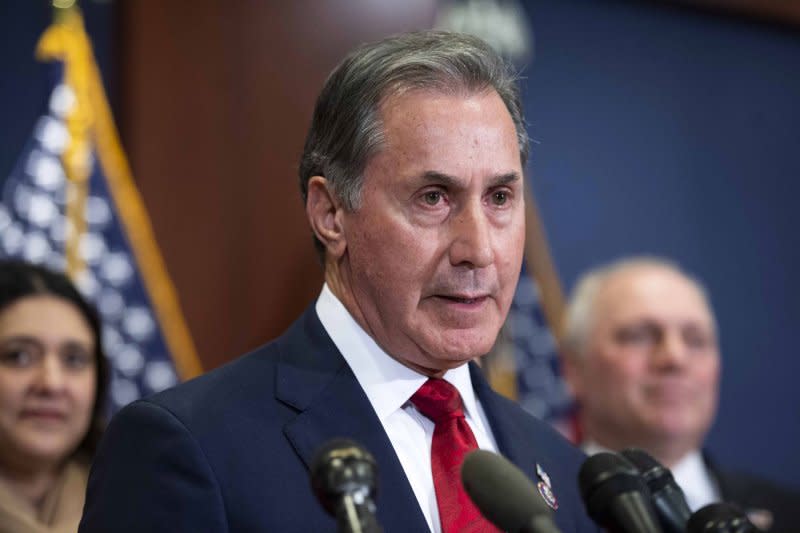
Donalds cited border security among the top issues that need to be addressed by lawmakers. He has also supported the growing "school choice" initiative and opposed critical race theory, which he described as a "warped ideology."
Donalds has been endorsed by fellow Florida Rep. Carlos Gimenez. Gimenez was among the holdouts against Jordan.
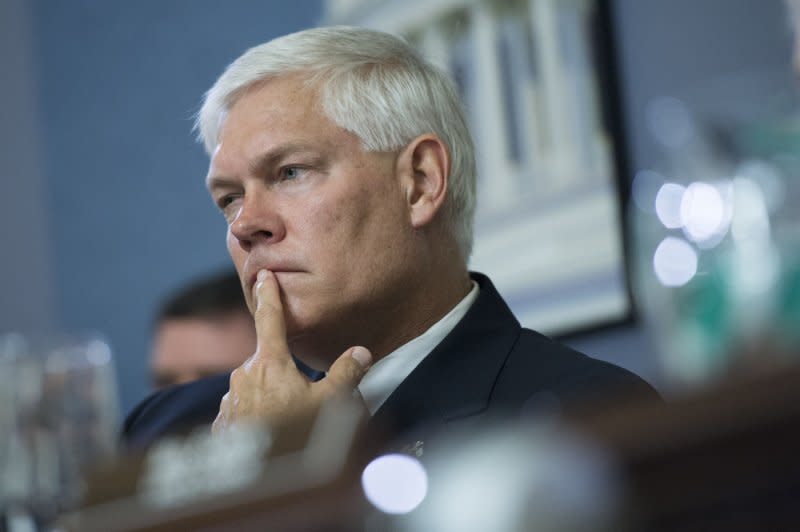
Jack Bergman of Michigan
Rep. Jack Bergman is a former lieutenant general in the U.S. Marines who co-sponsored the TEAM Act to earn benefits for veterans who were exposed to toxic chemicals in service.
Bergman has opposed healthcare for transgender armed service members, supported defunding Planned Parenthood and opposed abortion access.
Bergman is also one of seven speaker candidates to object to the results of the 2020 election, though he condemned the actions of Jan. 6 rioters, as well. In a statement following the 2021 attack at the U.S. Capitol, he said he believed there were "irregularities, discrepancies and usurpation of state election laws" that called for an investigation into the election.
"My hat is in the ring, and I feel confident I can win the votes where others could not, Bergman said in a statement. "I have no special interests to serve; I'm only in this to do what's best for our nation and to steady the ship for the 118th Congress."
Kevin Hern of Oklahoma
Rep. Kevin Hern is one of the most ardent Trump supporters on Capitol Hill. The entrepreneur and former owner of more than a dozen McDonald's franchises in Arkansas and Oklahoma considers himself a champion for businesses and international trade.
Following Trump's arraignment in Manhattan earlier this year -- one of four active criminal cases against him -- Hern doubled down on his support for the former president's re-election campaign.
"For those who think this will harm President Trump's chances at running for the White House in 2024, I have news for you: It won't," Hern said in a statement. "The same people who were outraged over the possibility of Hillary Clinton's prosecution for obvious crimes are now celebrating yet another witch hunt against the former president and political opponent of the current president."
Hern has also furthered Trump's claims that the 2020 election was "stolen," voting to object to the certification of its results in 2021. After the attack on the U.S. Capitol, he said he would not "back down" in his opposition to the results.
Mike Johnson of Louisiana
Rep. Mike Johnson is vice chairman of the House Republican Conference. He voted for Jordan during three rounds of voting for speaker.
A former constitutional law attorney, Johnson has represented Louisiana's 4th District since being elected in 2016. In a statement announcing his candidacy for speaker, he said aggression by Russia and China, the conflict in Israel and Gaza and border security are among the most pressing issues he aims to address.
"It [is] incumbent upon us now to decide upon a consensus candidate who can serve as a trusted caretaker and good steward of the gavel," Johnson wrote.
In 2021, Johnson objected to the certification of the presidential election results in Arizona and Pennsylvania, which were won by Biden. He has also supported the investigation into Biden led by House Republicans.
Austin Scott of Georgia
Rep. Austin Scott is the second of two Republican speaker candidates who did not vote to challenge the results of the 2020 election. He did challenge Jordan in a closed-door vote for speaker designee two weeks ago but failed to garner enough support.
Scott voted in favor of Jordan when the vote went to the House floor.
"If we are going to be the majority, we need to act like the majority, and that means we have to do the right things the right way," Scott said in a post on social media. "I supported and voted for Rep. Jim Jordan to be the speaker of the House. Now that he has withdrawn, I am running again to be the speaker of the House."
The 53-year-old has served in the House since 2011. He believes in life at conception, voting to affirm that belief in dozens of pieces of legislation over the years. He also supports efforts to maintain Social Security and repeal the Affordable Care Act.
Dan Meuser of Pennsylvania
Rep. Dan Meuser is the only Republican speaker candidate to split his votes on the certification of the 2020 election. He voted to object to the results of the election in his home state of Pennsylvania but did not object to the result in Arizona.
Following the attack on the U.S. Capitol, Meuser applauded the Capitol Police and Metro Police for their efforts to defend the building. He also maintained his skepticism about the election process in Pennsylvania, noting that a "large number" of his constituents remained frustrated.
Meuser's criticism of the riot has not swayed his support of Trump, however. Meuser endorsed Trump in an opinion piece, saying his policies are proven to work.
The fourth-year member's legislative priorities are enhancing national security and border security, combating drug and opioid abuse, protecting benefits for veterans and reducing federal debt.
Gary Palmer of Alabama
Rep. Gary Palmer was elected to the House in 2014. Prior to that, he founded and led the conservative think tank Alabama Policy Institute, as well as the State Policy Network, which operates numerous other Alabama think tanks.
Like six other candidates, Palmer objected to the results of the 2020 presidential election. He joined other members in announcing on Jan. 6, 2021, that he intended to reject some electors.
Palmer has also been critical of the indictments of Trump, calling the case against him in Washington a "stretch" to destroy him.
"Regardless of any opinions about President Trump or his statements about the outcome of the 2020 election, President Trump's statements are protected by the First Amendment right to free speech, especially political speech," Palmer said in a statement.
Palmer said Republicans must make reforms to demonstrate fiscal responsibility, in his announcement for his candidacy for speaker.
Pete Sessions of Texas
Rep. Pete Sessions is the longest-serving member among the nine Republican candidates for speaker. Prior to being elected, he was the chairman of the National Republican Congressional Committee from 2009 to 2012. He announced his run for speaker on Friday, saying he believes he can unite the Republican conference.
"During his congressional career, he has played a vital role in the Republican Party, in Texas and nationally, including a decade in party leadership," his announcement said.
At 68, Sessions is the oldest of the nine candidates. He was first elected in 1996, eventually losing his seat to Colin Allred in 2018. He then ran again and won his seat back in 2020.
Sessions voted against the Biden administration's Bipartisan Safer Communities Act, a bill meant to expand mental health access and enhance school safety. He also voted against gun safety legislation following the shooting at Robb Elementary in Uvalde, Texas.
On Jan. 3, 2021, Sessions tweeted that he had met with "folks from 'Stop the Steal' and encouraged them to "keep fighting.'" He later removed the tweet and condemned the actions of rioters. He also voted to overturn the results of the 2020 election.

 Yahoo News
Yahoo News 
